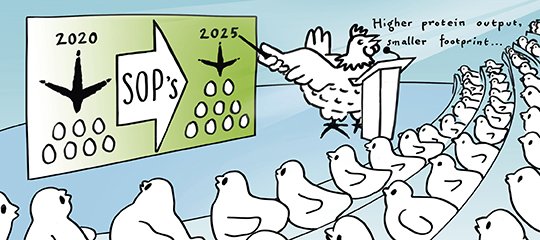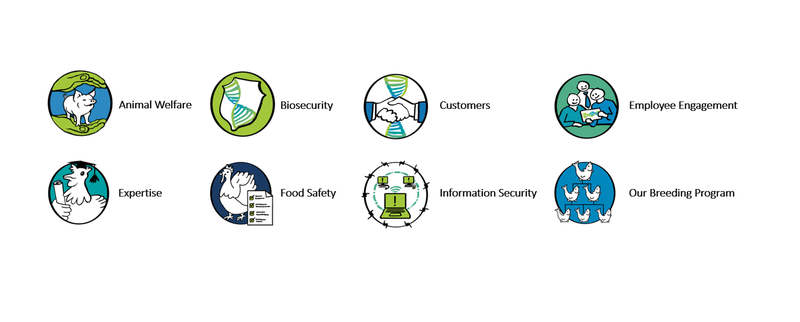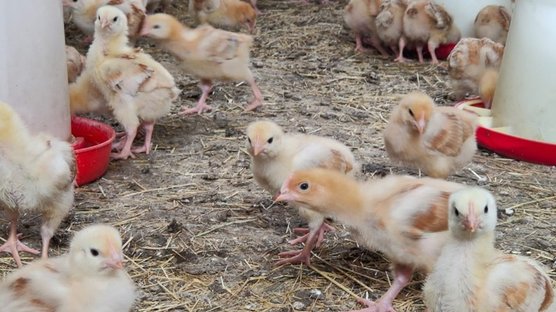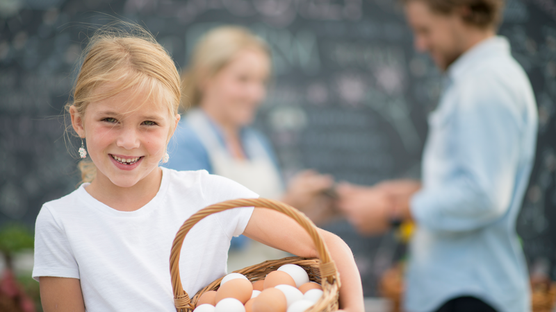
Published on June 26, 2020
Improved productivity in laying hens supports a sustainable future
During the past few months, many industries are feeling the impact of COVID-19. A very challenging start to the year to say the least. Through this challenging time, there has been a major shift in the consumption of eggs. From egg consumption in hotels and restaurants to currently increased retail sales.
Consumers are staying home, making their own recipes! With this steady flow of demand, the egg industry can be proud. Even more, as it remains the least disrupted animal protein value chain, affected by the current crisis. As the consumer demand for eggs worldwide has continued to remain high.
Why are eggs such a good protein source?
An egg has rich nutrients, and many essential vitamins. It’s easy to see why eggs are a winner. They provide complete protein and are eaten year-round, all over the world.
With the consistent need for eggs everywhere, we continuously improve on our laying hen breeds. Meeting the demands of billions and contributing to a sustainable future. Modern selection methods, such as genomics, make sure we pick the best animals. Automated measurements as well as massive investments in our R&D program have contributed to the success of our laying hens today. The attention to productivity and efficiency has become the standard for sustainability. This supports our contribution towards zero hunger worldwide. With the ability to produce more high-quality animal protein with consistent, dependable results.
Producing more eggs with less
Our laying hens are setting the standard in sustainable animal breeding. They are able to produce over 500, 1st quality eggs in a 100-week cycle. This reduces costs in production and creates additional revenues. It also improves the welfare of the birds and reduces the environmental impact of egg production. Using fewer resources and reducing manure. This is positive news for the egg industry.
Flatten the curve
Our breeding program selects for a flatter egg weight profile. This helps the birds to produce high-quality eggs all the way up to 100 weeks of age. Increasing the early egg size (before 30 weeks of age) is our next goal. We also aim to flatten the egg size growth later in life. Flattening the egg size curve results in high-quality eggs. As continued growth in egg size can be a contributor to poor egg quality. This is not only due to the inability to deposit more shell around larger eggs (the amount of shell available to deposit around an egg decreases with age).It is also related to the physical stress on the birds when producing larger eggs. Leading to fewer birds needed to produce the same number of eggs.
Long-life layers
Amazing results are seen all over the world with Hendrix Genetics breeds. From intensive open housed cage systems in the hot and humid areas of Brazil and the Middle America’s, all the way to the free range and organic systems in the Western part of Europe. Producing more with less, we can help feed more people while reducing environmental and economic impact. A standard of sustainability we strive to achieve for all species.
Keeping flocks longer offers clear benefits. Extending the productivity of the flock to 100 weeks means you can have the same number of weeks in production in 2 flocks rather 3.
What else can be expected?
We are able to extend this cycle by approximately 30 weeks of production. Using a balanced breeding approach for all traits combined with in-depth knowledge of the bird’s physiology and nutritional requirements. Today’s hens reach higher peaks of production and have improved laying persistency. Combined with improved egg weight curves, better liveability and longer-lasting feather cover, these factors have resulted in longer production cycles.
Focus on sustainability
Hendrix Genetics focuses on sustainability through the philosophy of Better Breeding Today, Brighter Life Tomorrow. We strive to contribute to a sustainable future right from the start. Improving our animal genetics to reach our targets. Meeting the growing demands of challenging environments and consumer needs. We focus on the next generation of highly efficient and healthy animals and we are able to rise to the occasion of feeding the world through improved productivity for all species.
Our 8 material stakes support the core of our sustainability program. Contributing towards a sustainable future that ensures the well-being of present and future generations of animals and people alike. Guiding the integration of sustainability as part of our business strategy and our daily activities.

Hendrix Genetics increases productivity in all animal breeding species. Reducing greenhouse gas emissions with each new generation. This supports our commitment to climate action. Producing healthy, robust animals from the start. Reaching their targets in survivability, quality, and meat or laying egg characteristics for example. We can influence improved efficiency to the production process, as well as increase revenue.
With the importance of reducing the impact animal production has on the environment, Hendrix Genetics has made a commitment to our breeding program. By including it as a material stake, we focus on breeding for efficiency through continuous progress in our multispecies breeding initiatives. We have been successful in setting standards worldwide. Further supporting our contribution to the responsible consumption and production of animal protein.
We are committed to finding solutions to improve sustainability as leaders in sustainable animal breeding. We will continue to make progress in our breeding programs and apply sustainable improvements across all species.



